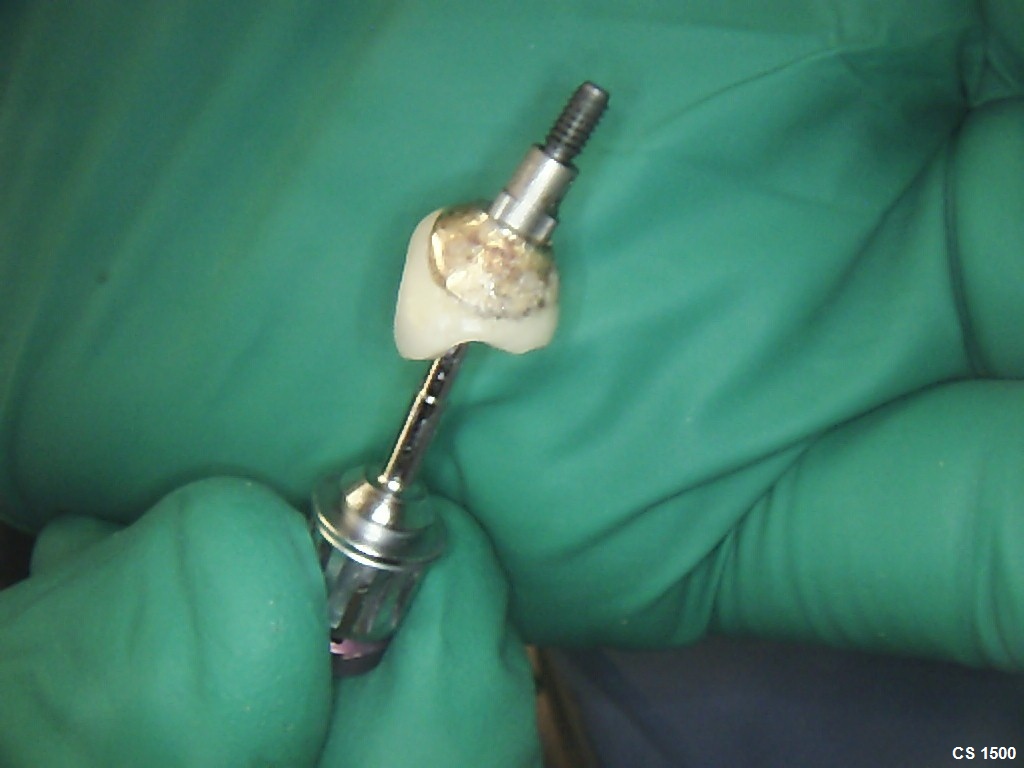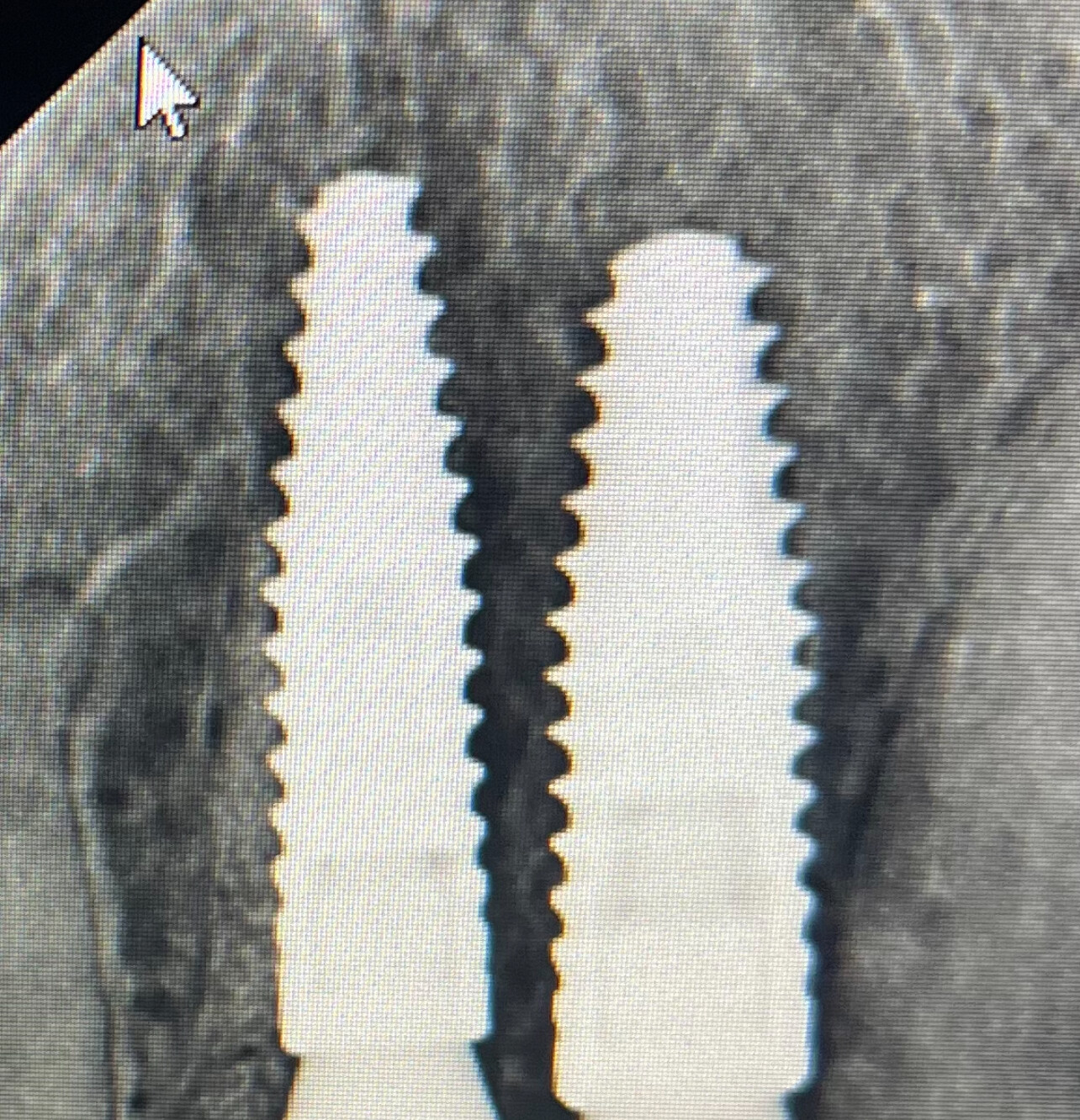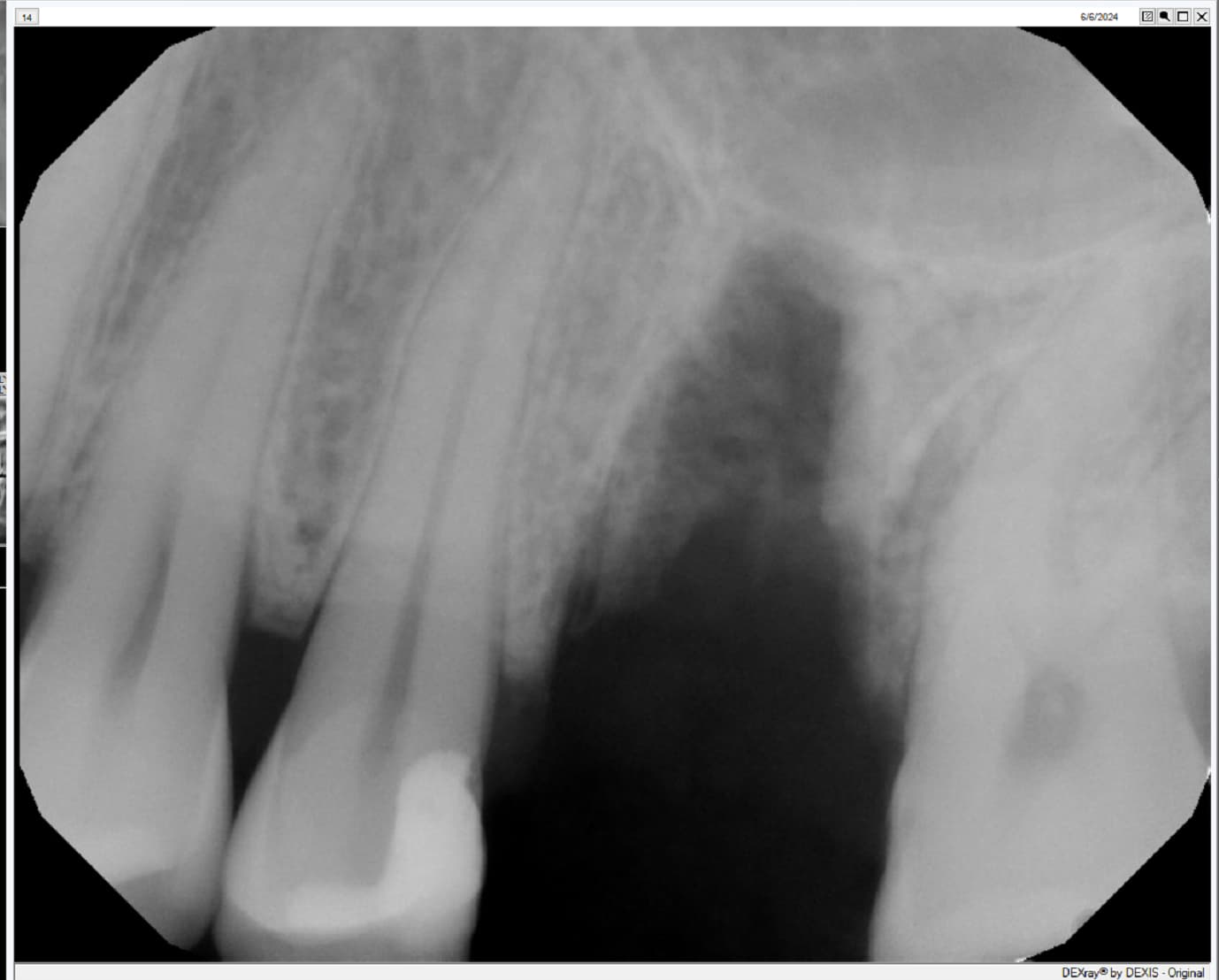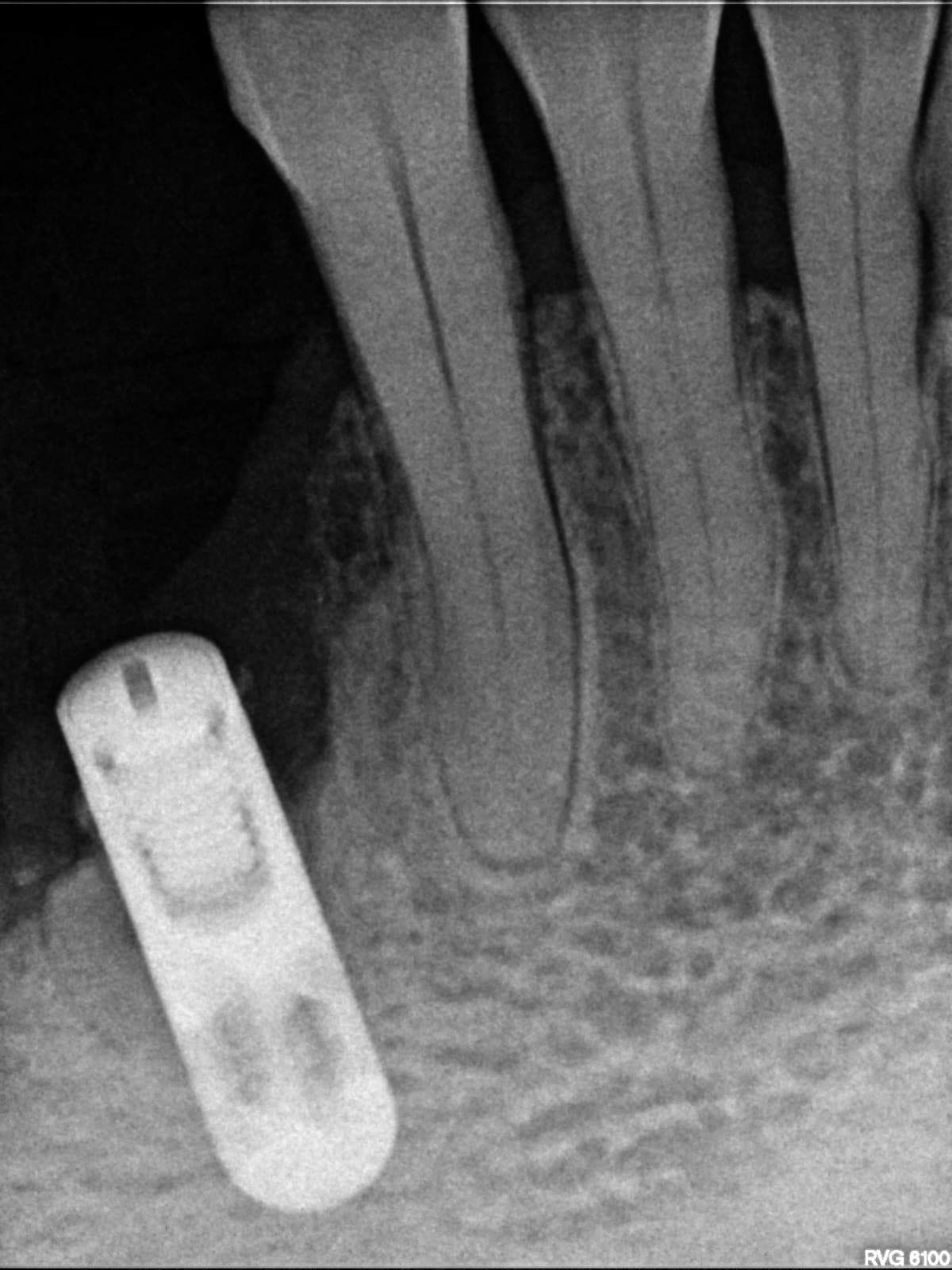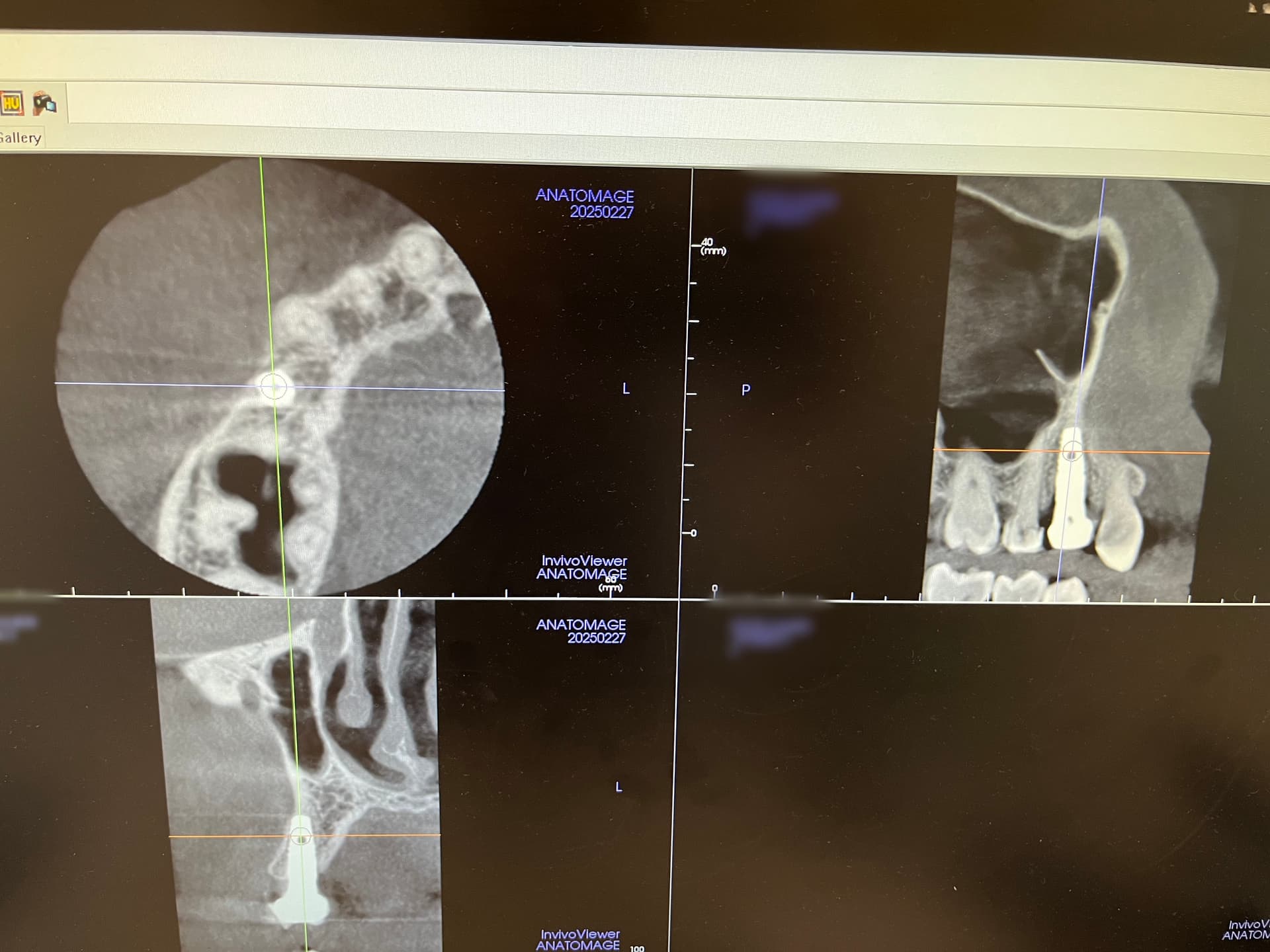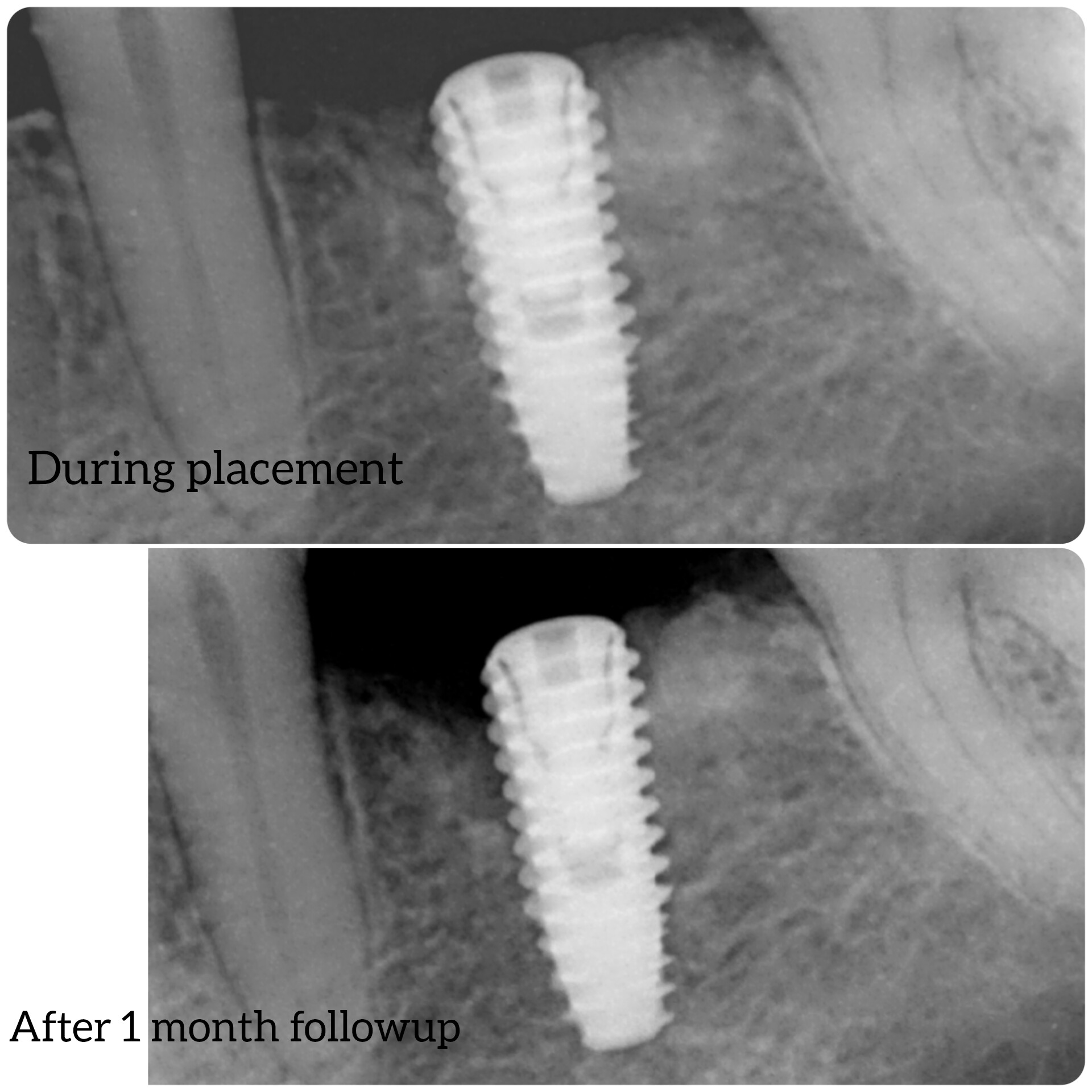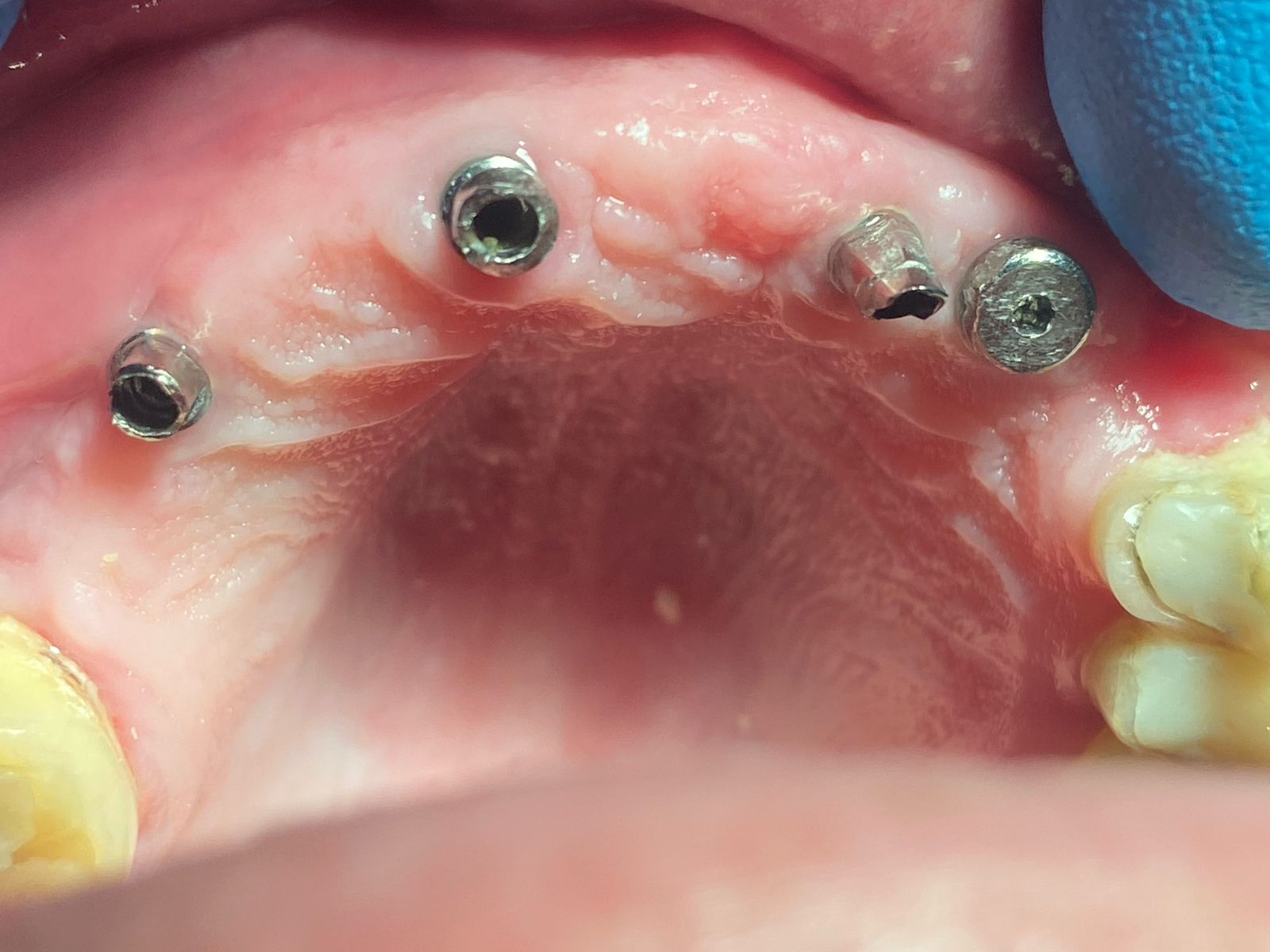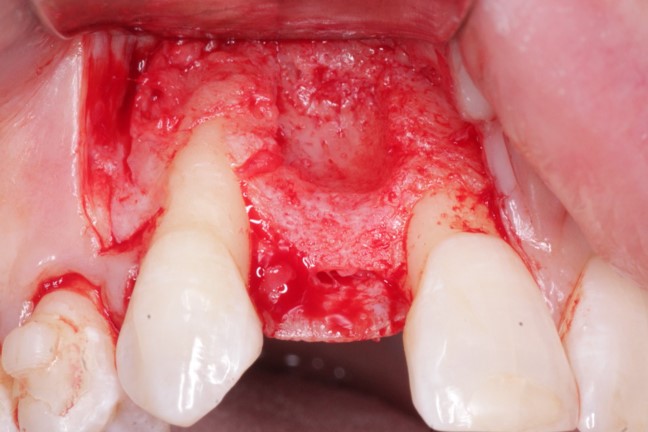CTx Test: Any Information?
Dr. S. asks:
One of my elderly female patients needs dental implants and has been taking oral bisphosphonates for many years. I spoke with her physician and he recommended a CTX test. What is this test and what does it measure? Are any other dentists ordering this test? If so, can someone explain how I order this test and how I interpret the findings? Are there any good articles that explain this?
Thanks.
24 Comments on CTx Test: Any Information?
New comments are currently closed for this post.
docf
5/26/2008
The CTx Test is short for: serum C-terminal telopeptide test. It is a medical blood test that is used to assess the risk of oral bisphosphonate-induced osteonecrosis of the jaws and guide treatment decisions.
The test is performed by Quest Diagnostics and the patient must fast 12 hours beforehand.
According to Marx ( J Oral Maxillofac Surg. 2007 Dec;65(12):2397-410.): "A stratification of relative risk was seen as CTX values less than 100 pg/mL representing high risk, CTX values between 100 pg/mL and 150 pg/mL representing moderate risk, and CTX values above 150 pg/mL representing minimal risk. The CTX values were noted to increase between 25.9 pg/mL to 26.4 pg/mL for each month of a drug holiday indicating a recovery of bone remodeling and a guideline as to when oral surgical procedures can be accomplished with the least risk."
SFOMS
5/27/2008
CTx is Serum C-terminal Telopeptide, crosslinked... a marker used to measure bone metabolism. It is a by-product of normal bone metabolism or bone turnover. In non-menopausal women, the normal value is "
SFOMS
5/27/2008
Sorry for the multiple posts, but the less than sign is being a little screwy.
CTx is Serum C-terminal Telopeptide, crosslinked... a marker used to measure bone metabolism. It is a by-product of normal bone metabolism or bone turnover. In non-menopausal women, the normal value is less than 250 - 4500 pmol/L, or less than 32 - 580 pg/mL". Any major university hematology lab or special hemotological testing facility should be able to run this test. For consistent results, a fasting sample is recommended at similar times.
Having a low value of CTx could mean that the bone turnover is low, thus less likely to recover from trauma, i.e. a tooth extraction or implant placement. The risk categories are listed above. 150 pg/mL is the guideline, if CTx is low, then discontinue the medication with physician approval and retest in 3 months. However, in random samples in the same patient, the value of CTx varied widely, so the accuracy of a sample may not be absolute. So this test is not an absolute necessity, just a guideline.
Dr. Steven Fox
5/27/2008
I have had several patients undergo the test. They had been taking BP for 3-10 years. All came back low risk.
YGC
5/27/2008
There is no evidence that oral bisphosphonate induces bone necrosis after dental implant placement. Also the criteria in the article published in Journal of Oral and Maxillofacial Surgery. 2007 Dec;65(12):2397-410. is not supported by scientific data. The scientific flaws of the article is also mentioned in the editorial in J Oral & Maxillofac Implants. 2008;24 :179-80.
Dr. Michael Downie
5/27/2008
We have 2 patients in our practice who: had dental implants placed, had subsequent osteonecrosis, and only risk factor was 5 years of oral Fosamax. Only 2 cases, but I became a 'believer' in the possibility rather than a practitioner in 'denial'.
Bob
5/28/2008
The Least Significant Change for Bone Resorption Markers like the CTX is 60-80% even if all test parameters (morning fasting, same lab etc.) are controlled properly. As long as test results vary this much we should not fool ourselves or our patients with "safe" or "unsafe" CTX-Levels. The working mechanism of bisphosphonates on a molecular basis is only partly understood and we know even less about the molecular mechanisms leading to ONJ. At this point we just don`t have accurate tools to precisely access the very low risk of ONJ due to oral Bisphosphonates. The Task Force Report of the American Society of Bone and Mineral Research on the Bisphosphonate/ONJ issue does not mention CTX levels at all.
mike
5/29/2008
Not all return high I just had one come back 67 from 2 years of boniva If you place implants in these patients on Bisphos, I hope you have good malpractice coverage. Don't you guys watch TV This is the attorney's next harvest crop. I suggest you proceed with utmost caution and intense consent and documentation if you do However we all know that doesn't keep us out of the courtroom.
Marx's data is all we have now to go on and I think this will be the protocal for any defense for complications.
Dr. Mehdi Jafari
5/30/2008
I sincerely invite everybody to use the following link:
http://www.osseonews.com/ctx-level-what-level-is-risky/
Thanks.
Joe Raposo
10/8/2008
My wife (76 years old) took a shot of Reclast last May. She needs to extrat 2 teeth and replaced them with implants. The Telopeptide ctx test shows 55. What means that? Can somebody help me?
It's ok to extrat and put on implants or not?
Susan Bybee
4/3/2009
I have been taking Boniva for 1 year and am scheduled to have a front lower tooth extracted. Should I stop the Boniva for a few months and/or have the CTX test?
Dr Legault
4/21/2009
Hi Susan, If you take any BP for more than 2 years, you want a CTX. If it is 150 (pg/cc) or higher, you feel safe to do whatever you want. Under this score, i recommand that you stop the BP (with the collaboration of your MD) so you take up your score. Expect 20-25 elevation per month. If you take corticosteroïds, you expect a 10-15 elevation a month.
Dr. Clyde Waggoner
11/3/2009
How does a CTX test relate to a NTX test. Do you use the same values, ie 150pg/cc? Are they totally different?
c mcelman
2/24/2010
please advise if CTx test is indicator of OTHER THAN ORAL bone metabolism risk????
Dr. Mehdi Jafari
3/1/2010
Drs. Waggoner and mcelman, please click on the following link to find your answer.
http://www.osseonews.com/ctx-level-what-level-is-risky/
Ann
3/11/2010
A client was told to obtain a CTx prior to placement of an implant. The result was 142 pg/mL. The client recently had a bone density test indicating a slight worsening of her osteopenia. She was told to go off of her Bisphosphonate for six months before the implant could be done. My concern is the risk benefit with this decision. She's been on this drug for a long time, her bone density is worse and I'm not aware of any studies to show going off this drug for this period of time is going to make a difference in success with implant surgery. I would be more concerned here about her progression from osteopenia to osteoporosis without her Bisphosphonate.
winifred chambers
7/1/2010
I am on Human Growth Hormone, which has greatly improved/eradicated my osteopenia. However, after less than 2 years of Boniva (while still on HGH), my CTX score was 121. My question is whether, in the face of a medicine which clearly and markedly improves bone metabolism and reverses osteopenia, the CTX measurement is relevant at all. That is, is slower bone turnover not acceptable when in fact the body is laying down new bone?
Richard Hughes, DDS, FAAI
7/2/2010
I would respect the CTx test results. However you may want to confer with an endocrineologist.
winifred chambers
7/7/2010
thanks for your advice. I will take a holiday from Boniva, and I already see the issue is very complex.
Helene
1/6/2011
I had a Reclast infusion in Feb.2010. I need a back Thooth pulled and my Dentist wanted an CTX Test first. My result is 89. What is next? do I wait ? do I get the next Infusion ?
Helene
Richard Hughes, DDS, FAAI
1/7/2011
Helene take the results to your dentist and he/she can go over them with you.
Allen Huang, DMD, MS
5/23/2011
I just heard from one of the Oral Surgeon that you no longer need to take CTX Value for patient on bisphosphate family? Is there any validity to this?
If so, what's the diagnositic test then, or are we no longer concern with osteonecrosis?
Your reply will be greatly appreciated?
buxiaonver
7/29/2011
My mom (68 years old) needs to have an implant and her dentist recommended that she get a CTX first, since she had been on Fosamax for about 2 years. Upon his suggestion she had her family physician order the test, and the family physician ordered “C-Peptide *R†onsite the hospital, which both doctors say are the same test.
The test result was 2.80 (ng/mL), which according to the dentist, is equivalent to 2800 pg/mL. THis appears to him an odd number given how high it is, especially after only 2 months of drug holiday. He’s perplexed but doesn’t want to call the family physician to question the result, and yet he still warns us the risk in case her real CTx value is low, which we don’t know, if this score doesn’t make sense and therefore doesn’t tell us anything.
So my questions are:
1. IS “C-Peptide *R†really the same as the CTX test?
2. If so, is it possible for someone to have a CTX score of 2800 pg/mL? What is the range and upper limit of this score?
Answers would help us understand whether there was something wrong with that test and decide whether she needs to have another test.
Thank you so very much!
Monica Ennis, RN
8/16/2011
I just learned of this test. I serve a population that often is diagnosed with osteoporosis and requests are made for use of IV Reclast annually. The people have been on Fosamax for 2 years without success in increasing bone density. Should I request the c-Telopeptide test be done prior to administering Reclast? Thank you for your help.










